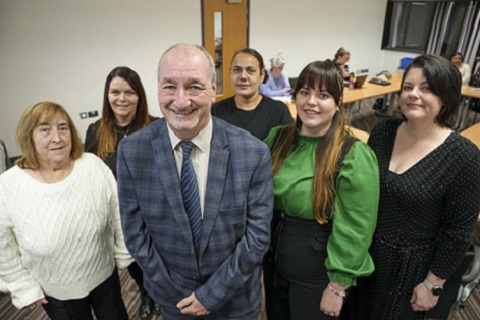The School for Field Studies (SFS) along with Marine Conservation without Borders (MCB) and Stichting Nationale Parken Bonaire (STINAPA) are implementing the project entitled “Novel Educational Tools to Foster Local Ecosystem Sustainability Practices”, a pioneering initiative dedicated to enhancing access to ecosystem education resources in the Caribbean.
The project introduces a dynamic strategy to address the widespread challenge of Sargassum across the region. The 14-month initiative is being supported by a €337,562 (US$355,406) grant from the European Union for the Resilience, Sustainable Energy and Marine Biodiversity (RESEMBID) programme, which aims to create ecosystem education materials that are more accessible through a multilingual podcast and an online ‘Sargassum Champions Course’.
The initiative will also see the development of a multilingual biocultural curriculum on local marine ecosystems for primary and secondary school students. These novel tools will provide not only a better understanding of the ecological impacts of the influx of Sargassum but will also help raise awareness on the challenges brought about by climate change and its effects on ecosystems, as well as new business opportunities that can provide solutions.
The podcast, available on four social media channels, features interviews with different Sargassum stakeholders, and highlights useful information to users and listeners interested in learning about the challenges and opportunities of Sargassum. The project is expected to benefit an estimated 2,450 people, including adults and students.
The new digital tool coverage is accessible to anyone interested, from Overseas Countries and Territories (OCTs) and the wider Caribbean. The Sargassum podcast has published over 64 interviews with experts and stakeholders that are either impacted by Sargassum or working on solutions.
This EU-funded grant makes it possible for the podcast to continue for another 20 episodes and feature more people from the OCTs. The first online Sargassum course was completed between August 11 to September 6, 2023. Over 20 local residents from OCTs learned about Sargassum beaching events, including methods of Sargassum removal and potential Sargassum byproducts.
Participants interacted with experts and stakeholders from other Caribbean Islands, discussing how Sargassum is managed in their countries and territories. They are now able to share their newly acquired knowledge in their local communities as Sargassum champions.












